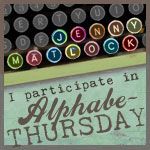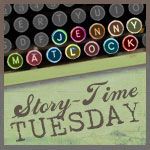Since I’ve started writing “Sundays with Steve”, I’ve been thinking about vignettes of my life growing up in North Idaho. I realize the town where I grew up and the life I lived with my family is really a classic, all-American story. Perhaps you will recognize some of your childhood in these writings. And perhaps you will recognize the town you grew up in along with some of the characters you knew. Mrs. Steve has encouraged me to write these attempts of “creative writing” as opposed to the more factual journalistic style I was trained in and practiced in my early career many years ago. So my apologies if I stumble a bit here and there trying to blend the two styles together.
This is a continuation of Crossing the Plains, a fascinating tale of a covered wagon trip from Missouri to the Washington Territory in the post-Civil War period when the U.S. population poured to the West. It was written by a distant great great aunt, Barbara Jane Matlock McRae in 1939, when she was 81. This story will occupy this space for the next several weeks, as it is a fascinating peek into what we often consider the pioneer days.
Part 5

The next morning after the excitement of the night before, the men all got together and decided to travil together and camp together and take turns to stand guard ever night, now that we were on the indian war path. They apointed my father captain or maniger of the emigrant train. Their were other emigrants who joined us along the way at diferent camping places till there were nearly a hundred wagons in the train. Evry night too men would stand guard till midnight and too more would get up and stand guard till daylight. Evry night my father would have the wagons drove in a circle and all camp fires would be built inside the circle. There were plenty of green grass for the horses but they were not aloud to get far from camp.
We traviled along the plat river in the hot sun and dust in a slow moving train of emigrants wagons. It was very montnous. We could see in the far distance large citys steeples and spires and tall buildings reaching toward the sky and lakes with ships and boats floating on the surfas but to our surprise it was all a mirage. We could hardly beleave our eyes when we could see it no more.
Game was plentyful. Deer and antilope and some buffalo. We onley saw one herd and they were wild. No one could get a shot at them. In early times in 1869 – 70 and up to 74, there were thousands of buffalo but hunters and sportmans and indians had slaughtered them by the thousand. When the kansas pacific rail road was under construction as far as fort sherdon, Bill Cody, Buffalo Bill as he was known on account of killing the most buffalo in a contest with one Bill Comestock, Buffalo Bill had a contract with the rail road company to hunt meat for the crew of 12 hundred working men dureing the year and a half that he suplied them wtih fresh meat. He killed four thousand too hundred and eighty buffalo. No wonder the buffalo disapeared from the plains and the wild indian went to the war path to see all this game disapear. When the rail road reached fort sheridan it was decided to build no further at that time, so Bill Cody went to scounting again as the indians had become troublsom again. Buffalo Bill was one of the best poney express riders and indian scout and stage driver in troublsom times, and a union army scount, that the pioner dayes of the plains had ever known.
One evening just after we drove into camp a booted and spured cowboyish looking fellow road up to our camp. He had a new modle rifel and too large six shooters buckled around his waist and had on wooly shaps. He asked my father if he could stay in camp that night and get his supper and breakfast and sleep in our big tent with the boys. He had a roll of blankets tied to the back of his saddle. He looked tired. His horse was very tired. Father told him he could, so he handed his rifle and both pisoles to father and unsaddled his horse which was a fine horse that was covered with sweat. He rubbed him down and took his lass roap, the kind all cow boys carry at the front of their saddle in those dayes, and staked him out. He sat down till supper was ready. We always thougt he was Buffalo Bill on a scouting trip. He had long dark curly hair with black mustach and a wide cow boy hat. After seeing Buffalo Bill in 1908 in Walla Walla Washington at his wild west show, I was more convinst it was him. Of course he looked much older then but he still had his long curly hair down on his shoulders and a long mustach but that was quite gray, he still had a wide cow boy hat. The night he staid with us in a camp way out on the plains we thought it was him. The other emigrants what was campts with us, their were about sixty wagons in all then, some of the men were so freightened of this cow boy that had nothin to hich up and drive on, they were angry at my father for taking him in. But father said if he intended to do us harm he wouldent have turned over his guns, and as we were in the middle of indian country at that time, and was liable to an atact most any night, he was rather glad to have such a man in camp. Some of the men thought he was some kind of a spy. My mother game him some beding and with his own blanket he slept in the big wagon where my three brothers slept. Father took his guns in his wagon for the night. One man especialy was so freightend he could hardly talk. He said he would rob and kill us all. The stranger notist that some of the emigrants were freightend and he told my father they dident need to be afraid of him, that he wouldent molest or harm any one, that he was a friend of the emigrants, that he was on an important mision and was tired and sleepy from his long hard ride. The next morning after he had his breakfast he sadled his horse. My father gave him his guns. He thanked my father and mother courtely for their kindness, waved his hand and road away. I am sure he was Buffalo Bill of whom I may speak of later in my story.
TO BE CONTINUED ON SUNDAY, March 6
(c) 2010 Stephen J. Matlock
This publication is the exclusive property of Stephen J. Matlock and is protected
under the US Copyright Act of 1976 and all other applicable international, federal, state and local laws. The contents of this post/story may not be reproduced as a whole or in part, by any means whatsoever, without consent of the author, Stephen J. Matlock. All rights reserved.




















11 comments:
Gosh, they were brave people. I would have stayed in the East. It's amazing any of them made it to Calif. those were hard times.
Hell, I wouldn't even go to the desert now. I am too afraid of snakes. Very interesting story, I have a video of ghost towns I just watched last week not for me.
yvonne
How interesting that, even way back then, this young girl understood the impact of the over-hunting.
I wonder who the mystery man was?
Another wonderful chapter in a fascinating life. Thank you so much for sharing this with us.
This just keeps getting more interesting. Saturdays are seeming to come around slower now that I am looking forward to your next great chapter every week. I love this kind of story, especially the true ones. Hugs
The story keeps getting better. I love reading first hand accounts like this!
How exciting! He must have been very exotic looking for other men to be so scared that they would up and leave the safety of the wagon train! Her father was a good and brave man to take in the stranger. This story is really pulling me in. It should have been published Steve. It is a very captivating story!~Ames
Jenny, come visit my blog, I have a surprise for you :)
Susan
Steve, this is getting even more interesting! I didin't think that was possible, but it's true!! I am looking forward to next Sunday's episode!
This continues to be fascinating stuff. She was witnessing the birth of one culture and the end of another.
I have been giving birth to a grandbaby lately...well....sort of....and haven't been able to make the rounds. I am so intrigued, I will have to go back and get caught up with this wagon train story. I am so glad you wrote it with all the misspelled words. So fascinating!
Darn it, I need a cup of coffee, a quiet house and more time to read the earlier parts!
Post a Comment